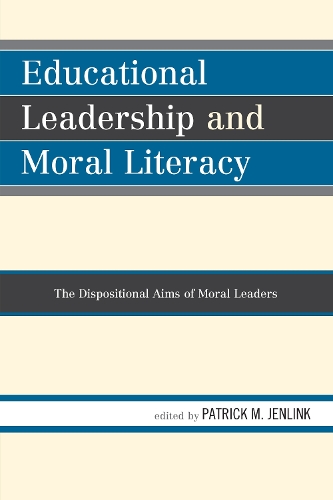
Educational Leadership and Moral Literacy: The Dispositional Aims of Moral Leaders
(Paperback)
Publishing Details
Educational Leadership and Moral Literacy: The Dispositional Aims of Moral Leaders
By (Author) Patrick M. Jenlink
Bloomsbury Publishing PLC
Rowman & Littlefield Education
18th March 2014
United States
Classifications
Tertiary Education
Non Fiction
371.2011
Physical Properties
Paperback
248
Width 152mm, Height 228mm, Spine 18mm
372g
Description
What makes a moral person moral Who decides what morality means What makes leadership practice moral In todays schools, what stands as moral leadership These are questions that reflect the complexity integral to the calculus of human morality, especially in a world that is defined daily by its variant meanings of morality, its acts of immorality.
The school as an educational setting is or should be a decidedly moral center of the society; it is the natural intersect between the family and the multi-dimensional nature of public life. Educational Leadership and Moral Literacy addresses these questions, situating the reader in a conversation that examines the meaning and nature of moral leadership through the lens of moral literacy and the dispositional aims of moral leadership in educational settings. The contributing authors extend an argument that the work of leader educators and practitioners alike must continuously be re-articulated around the dispositional aims aligned with a moral, democratic education. Educators must be concerned with developing the moral, intellectual, and aesthetic dimensions of the educational leader as a moral person.
Reviews
This substantive work on the contemporary topic of educational leadership and moral literacy engages leaders in the significant task of developing beyond competent leaders into moral architects. This lens advances the field of educational leadership where the role of leaders as moral agents for todays schools has gradually come to the fore. Those who prepare educational leaders will also benefit from how the contributors to this volume peel back the onion on the topic of morality, exposing it in relation to such crucial areas as dispositions, literacy, climate/culture, and selfhood. -- Carol A. Mullen, professor of educational leadership, director of the School of Education, and associate dean for professional education of the College of Liberal Arts and Human Sciences, Virginia Tech University
In the emerging test score cheating scandals and in a time with increasing privatization of public education in which profits are placed ahead of everything else, I cannot imagine a more timely book than Educational Leadership and Moral Literacy. Chapters on moral integrity and courage, along with an understanding of the nature of moral perseverance, are especially relevant to restore the ethic of public service for educational leadership which is on the verge of being erased. -- Fenwick W. English, Teachers College, Ball State University
Patrick M. Jenlink in his new book, Education Leadership and Moral Literacy: The Dispositional Aims of Moral Leaders, explains moral consciousness, obligation, judgment, understanding, and socialization in terms that leaders can understand and employ in their lived realities. He encourages educational leaders' metacognition and moral-cognition in order to actualize moral leadership. -- Beverly J. Irby, professor and associate dean, Academic Affairs, Marilyn Kent Byrne Endowed Chair for Student Success, Texas A&M University
Author Bio
Patrick M. Jenlink is Professor of doctoral studies in the Department of Secondary Education and Educational Leadership and is Director of the Educational Research Center at Stephen F. Austin State University. His scholarly interests are focused on moral literacy and leadership.
